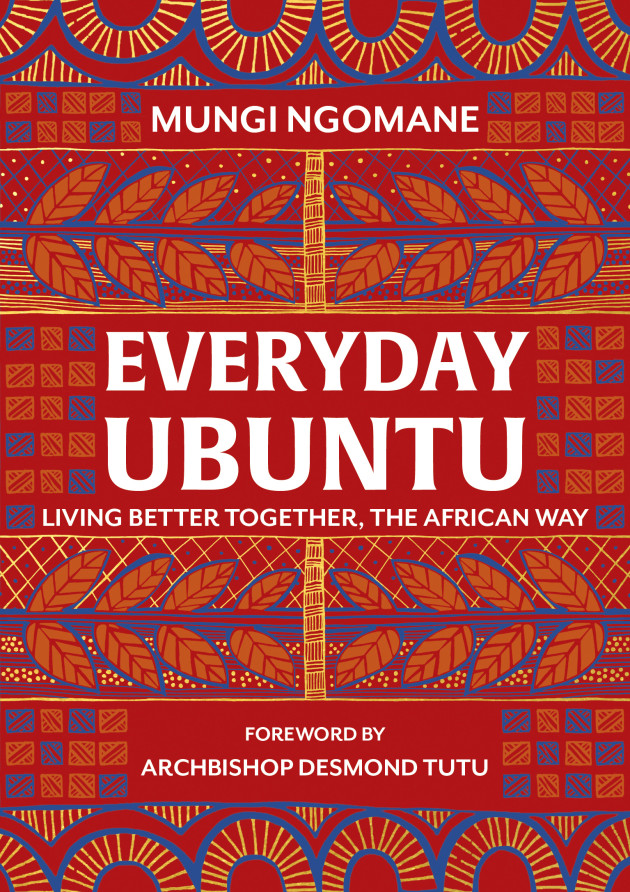
The most inspiring book of the year: Read an extract of Everyday Ubuntu
Once in a while we are blessed with a book that transforms your life for the better and this year that book is Everyday Ubuntu by Desmond Tutu’s granddaughter, Mungi Ngomane.
This book will capture readers interested in ancient wisdom and personal development. It shares a warm, inspirational message of togetherness for a divided and fragmented world.

Ubuntu is an ancient South African philosophy that says, ‘I am only because you are.’ It is the belief that we are defined by our compassion and kindness towards others. By embracing Ubuntu it’s possible to overcome division in a world where the wise build bridges, not walls.
Exploring ideas of kindness and forgiveness, tolerance and the power of listening, Everyday Ubuntu shows how we can all benefit from embracing others. Including practical applications and mindful exercises, it is an inspirational guide to a more fulfilling life as part of the large family to which we all belong.

In Everyday Ubuntu you’ll discover 14 simple and engaging lessons with clear takeaways and reflections that will help us all to live better, together.
Read an extract of Everyday Ubuntu below:
1. Accept the situation. This is the way you’re feeling, so honour it – cry and release your emotions. Ubuntu tells us that we need to take care of ourselves and be honest about our feelings. This helps to identify why you’re feeling hopeless. Is it because of a recent upset? Or is it a long-term struggle? Whatever it is, naming the reasons for your feelings will help you to release them.
2. Take action. Some call it ‘wallowing’ but hopelessness can easily feel like a spiral into which you’re sucked and out of which it is impossible to pull yourself. You feel lethargic, unmotivated and in despair. Listen to your internal dialogue. It might contain phrases such as, ‘but I can’t’, ‘there’s no point’ or ‘I’ve already tried’. The first step is turning those words around and changing every negative into a positive. Say these new phrases out loud – ‘I can’, ‘I won’t give up’ and ‘I’ll try again’ all send a powerful message to our subconscious.
3. Live in the present moment. Do something to make yourself feel better physically, even if you’re struggling mentally – the two are linked. A long brisk walk, calling a positive friend, eating wholesome food. These are all small things we can do to help change our immediate concerns. Worrying is wishing for what you don’t want to happen, so don’t agonize over the future. Focus on the present. Do anything that takes you out of yourself, even if it’s just for a few moments.
4. Write a gratitude list. Ubuntu shows us that we all have something for which to be grateful, so now is the time to examine the good stuff in detail. You might be thankful for your physical health, your family, caring friends, the delicious cup of coffee you’re drinking. Name the things you feel good about right now. It’s an exercise that will shift your mood, energetically and quickly.
5. Set goals. If you’ve reached a place of desperate hopelessness, you need to put in work each day to overcome the feeling. Get going by setting yourself new goals, and begin with very small ones – incremental and easy-to-achieve steps.
If you’ve lost your job, start by reaching out to trusted contacts for advice, then build up to looking at job adverts before applying for positions. If you’ve been ditched by a partner, give yourself time to grieve and talk things through with a counsellor or friend. Allow yourself space to heal before even thinking about dating again. If you’re in despair because you’ve gained weight, find a simple exercise app to inspire you, build up the amount of exercise you do every day, find a workout buddy, then look at food plans to help you make a bigger transformation. Small steps help hope to gather momentum.
6. Find your faith. This could be a long-term goal that evolves over time. It doesn’t have to be a religious faith, but having faith in something you can trust is something everyone needs. It could be faith in your abilities or your choices. You could put your faith in going for a daily run to improve your mental health or in eating nutritious food so that you have energy for the day.
Build some of these hopeful ideas into a new daily routine. They’ll bolster you and give you an inner strength and hope on which to rely when things become difficult.
Everyday Ubuntu by Mungi Ngomane is published by Penguin. You can order your copy here.






